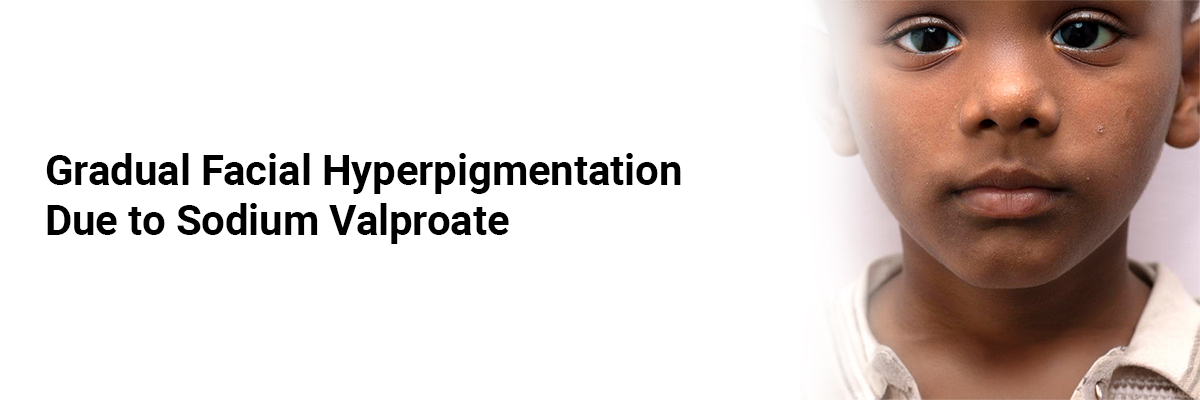
Gradual Facial Hyperpigmentation Due to Sodium Valproate
An 11-year-old boy exhibited gradual hyperpigmentation over the perioral region, eyelids, and right forehead – during the nine months following the initiation of oral sodium valproate for primary generalized epilepsy.
The child did not have a significant drug history; no other medications were involved, and there were no associated symptoms or systemic complaints.
On physical examination, slate-gray pigmentation could be appreciated – without infiltration or mucosal involvement. Laboratory tests yielded normal results. A clinical diagnosis of valproate-induced hyperpigmentation was established. The patient's medication was discontinued, and he was switched to oral levetiracetam. Follow-up after three months revealed fading of hyperpigmentation in the affected areas.
Drug-induced hyperpigmentation is a common occurrence, often arising after drug-induced rashes or fixed-drug eruptions. Mechanisms include melanin production stimulation, iron deposition due to vessel damage, or drug/metabolite accumulation within the skin.
While various medications are associated with lip or oral hyperpigmentation, sodium valproate-induced cutaneous hyperpigmentation is exceptionally rare. Previous cases reported mucous membrane hyperpigmentation, which resolved upon drug discontinuation. Although rare, clinicians should be aware of valproate-induced hyperpigmentation, as timely switching to another antiepileptic medication can lead to partial or complete resolution. The case underscores the importance of recognizing and managing uncommon adverse effects of antiepileptic medications in pediatric patients.
Source: Elwadhi A, Neha KC, Gupta D, Sharawat IK, Panda PK. The Journal of Pediatrics. 2023 Dec 1;263.













Please login to comment on this article